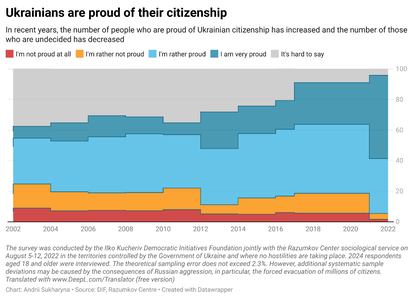Alumni
One Year of War in Ukraine: What Does It Mean for The Global Security and Southeast Asia?
FNF Malaysia hosted its FNF Alumni Gathering on the 15 February 2023 in Kuala Lumpur. This is an annual event in which FNF gathers its alumni not only for attending an event but also for staying connected. An FNF alumni is anyone who attended an event conducted by FNF or a course at our International Leadership Academy in Germany.
This time, we invited Prof. Olexiy Haran who is a professor of Comparative Politics at the National University of Kyiv Mohyla Academy (UKMA) to share his insights on the current situation in Ukraine.
Russia invaded Ukraine on 24 February 2022 and since then the tension between the two countries has not subsided yet. Even though geographically Southeast Asia is far away from the conflict, there are concerns that the conflict could have a ripple effect on the region’s security. For example, some experts noted that the war could embolden China to pursue a more aggressive foreign policy in the South China Sea, which would have significant implications for the regional stability.
143 vs 5
On Wednesday, 12 October 2022, the UN General Assembly had passed a resolution by a large majority. The UN had called on countries not to recognize the four regions of Ukraine which Russia has claimed, following so-called referendums held by Russians in September 2022, and demanding that Moscow reverses the course on its "attempted illegal annexation".
The result was that 143 Member States were in favour, five voted against, and 35 abstained. The countries which voted against were Belarus, the Democratic People's Republic of Korea, Nicaragua, Russia and Syria.
The resolution “Territorial Integrity of Ukraine: Defending the Principles of the Charter of the United Nations”, notes that the regions of Donetsk, Kherson, Luhansk and Zaporizhzhia are temporarily occupied by Russia as a result of aggression, violating Ukraine’s territorial integrity, sovereignty and political independence.
The General Assembly automatically took up the resolution for debate, triggered by Russia’s use of the veto in the Security Council over its attempted annexation.
But how did it all start?
Maidan: not a Western-organized coup d’etat
Euromaidan, or the Maidan Uprising, was a wave of demonstrations and civil unrest in Ukraine, which began on 21 November 2013 with large protests in the Maidan Nezalezhnosti in Kyiv.
This demonstration was a month’s long non-violent protest against a corrupt and criminal regime which was supported by Russia at that time.
In February 2014, more than 100 people were killed and 2,500 injured in clashes with security forces, some of the people even shot dead by snipers. The majority of those killed were civilians who supported the revolution. The protesters eventually succeeded in toppling the then president Yanukovych's government, and a new pro-Western government was installed. The events of the revolution were seen as a turning point in Ukraine's history, with many Ukrainians viewing it as a symbol of their country's struggle for democracy and independence.
Ukrainian political nation
The modern Ukrainian nation is based on the territorial principle and not on ethnicities and is therefore “inclusive” rather than “exclusive.”
Despite the war in Donbas, Russia`s aggression actually cemented the political Ukrainian identity regardless to the language – Russian or Ukrainian – spoken. This explains for instance why Russian-speakers and locals from Donbas both are part of volunteer battalions fighting in Donbas for the integrity of Ukraine.
This can be underlined in the graph below: While in 2002 less than 50% of the Ukrainians were rather or very proud of their citizenship, this number got significantly up until today.

The impact towards Malaysia
Prof. Haran stated that one of the effects of the war on Malaysia is the impact on the market economy, such as the rising price of wheat.
According to the Economic Outlook 2023, the direct impact of the Russia-Ukraine war on Malaysia is limited due to the two countries' minor trade and financial relations. According to the report, trade between Malaysia and Russia amounted to RM8.8 billion (0.4%), and trade between Malaysia and Ukraine amounted to RM1.5 billion (0.1%). However, the prolonged conflict has resulted in an increase in food and fuel prices.
Following Prof. Haran`s presentation he addressed all the questions raised including the important question about the real impact of the war towards Malaysia. The audience was glad to have the opportunity for first-hand information and to learn more about the situation on the ground.